
Christian Musician Russ Taff: Singing Through the Shame
For two decades, multiple Grammy and Dove award-winning musician Russ Taff was one of the leading voices calling a generation to celebrate the goodness of the Father and receive the unconditional love of the Savior.
Yet in his personal life, there was one special person Russ could never convince that they were loved and accepted by the Heavenly Father.
Himself.
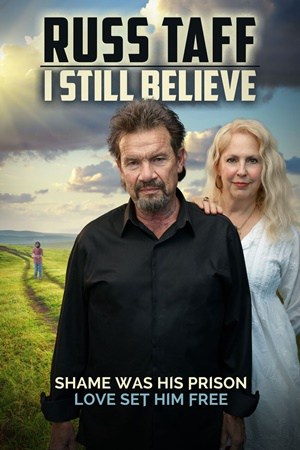
Russ Taff’s journey of heartache to find that unconditional love is the focus of the upcoming film, I Still Believe, which follows Russ through his struggles with alcoholism, depression, and acceptance.
Along the way, we hear from some of the most recognized voices of Christian music and entertainment, who also happen to be his friends: Michael W. Smith, Amy Grant, Michael Tait, Mercy Me’s Bart Millard, Mark Lowry, Bill Gaither, Chonda Pierce. Some walked with him through the highs and lows. Others were influenced by Russ through his ministry. The one-showing Fathom event will be in theaters throughout the country on Tuesday, October 30.
Russ also just released his first album in seven years, and 35 years after his first solo project, Walls of Glass. Aptly titled, Believe, his worship album includes tracks recorded with Amy Grant, and David Crowder.
FamilyLife recently had the chance to talk to Russ and his wife, Tori, in their home in Bell Buckle, Tennessee about their journey and its deep ties to family, marriage, love, and legacy. This article features many aspects of their story featured in the film. However, hearing and seeing them tell their own story, especially their love story, carries far greater impact than just reading their words. So we encourage you to see the powerful movie.
If you find yourself identifying with Russ and Tori’s story, FamilyLife articles offer help and hope for those struggling with emotional trauma and addiction.
An impossible God
Russ Taff was born in 1953 to Joe and Ann Taff and grew up in Farmersville, California. His father was a fiery Pentecostal preacher who pointed people to a holy God and called them to change their lives to live by a higher standard. Preaching was his father’s life.
“Preaching was daddy’s golf and fishing and everything,” Russ says. “So every summer, our vacation was him preaching Arkansas and Missouri in revivals. There was a call of God on his life, and he preached with fire and anointing.
“But what he was preaching, nobody could attain.”
Joe Taff spoke of an impossible God, and his listeners were left with the impression that only by living a perfect life could they really know Him.
And nobody could live a perfect life. Not even Joe Taff. For there was another call on his life, from another master . . . alcohol.
As fiery as he was in the pulpit, he would be equally fiery on one of his many benders. Russ recalls one early event when his dad came home drunk. “I didn’t know that guy who came in that door,” Russ says. “He was talking in a way I’d never heard before. I hadn’t heard those words.” He shoved his younger brother, Earl, under the bed and then crawled in himself, on the outside to protect Earl.
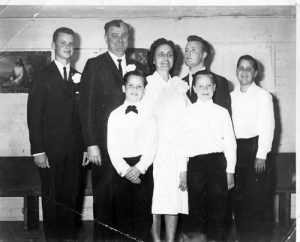
A toxic atmosphere
Although his father never physically assaulted Russ and his brothers, the constant dose of poisonous words they heard from him was just as damaging.
“You’re not worth the bullet to shoot you with.”
“You’re not worth the salt that goes on your bread.”
“You’ll never be worth anything.”
“It was just a steady diet. No matter what you do, it wasn’t good enough,” Russ says. “And you take it all into your adult life, and you’re full of shame.”
Russ learned early on that his shame should stay hidden. One day at school, he told one of his schoolmates about an argument between his parents the night before. Apparently, Russ’ older brother had overheard and told his mom, because when he got home, she was waiting for him.
“She was raging. I was sitting across from her maybe four feet away. She took her shoes off and threw them at me, screaming, ‘You don’t tell anybody what goes on in this family!’ Then she pulled the books off the shelf and threw them at me and came over and just started punching me and kicking me while I was balled up in a corner, with her kicking, screaming.”
One reason Russ hesitates to talk about this now is that he knew his parents weren’t monsters. If you had met them in public, you would like them and relate to them, he insists. They were people in pain, he says, and their pain spilled out on others.
Seeking joy in song
Russ Taff’s one release was music. As a boy, he spent hours listening to his mother’s record collection of some of the Southern and black gospel greats of the day. The music and the message resonated with his soul. “By the time I was eleven, I would work up a song, and I would go down to the church and sing. I felt God’s pleasure. I thought, ‘I can do this.’”
But even in that joy, he could never get far from his father’s oppression or gain his approval.
“My dad had to be the center of attention,” Russ says. “I would sing, and I would know I did good and that I connected with the Holy Spirit and that little audience there. But Dad would get jealous of me and he would emotionally punish me by not looking at me, not talking to me.”
‘You’re not welcome here’
Eventually the leaders in the small church Joe Taff pastored were forced to address his alcoholism. They offered no help; there was no dialogue. All the church people knew was that they couldn’t have a drunk preacher. They called him before the church, and they dismissed him as pastor.
After the church leaders voted his father out, Russ went to the church with his guitar, intending to sing for the congregation. “But my uncle, who had taken over the church, stopped me and said ‘Russ, you’re not welcome here.’ And when I said, ‘Why? I didn’t do anything wrong,’ he said, ‘Because you’re his son. And we don’t want you here.’”
Even in his desire to do the right thing amid all the wrong, he could never separate himself from his father.
Meeting Jesus in the dark
Though they were banned from the church, Russ still sought solace there. His mother still had a key to the building, so late at night he would take the key and sneak down to the building. In pitch black darkness except for a small desk lamp, he would sit and cry out to Jesus, telling Him what was happening and how scared he was. “I would tell Jesus, ‘You’re the only one I can talk to.’ He was the one who could walk me through this and get me out of this.”
For years, Russ Taff found his comfort and safety cloaked in the darkness of an empty church and in the presence of Jesus. Over the years, that love and trust grew, and at age fifteen, he decided to commit his life to follow Christ.
But in the family, things were still the same. Since age twelve, Russ had assumed responsibility for caring for his younger brother, Earl. And by fifteen, because of his father’s alcoholism and mother’s emotional state, Russ had become head of the family by default.
“My mother had just fallen apart,” says Russ. “And you can’t blame her, My Lord. She’s living with a maniac and a man who loved God with all his heart. He was both of those.”
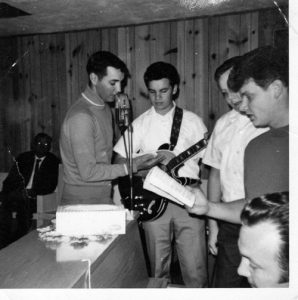
Same verse, new stanza
Pastoring a new church, Russ’ father was again removed because of his alcoholism. By now there was no one left who was willing to help out the family. Checking with churches where Joe had done revivals, Ann heard there was a church in Hot Springs, Arkansas, that was willing to give them a chance.
It wasn’t just the Taff family that was moving from California and crossing the country at that time. The Jesus Movement was beginning to sweep the nation. Taking its lead from the hippie culture, it challenged the rigidity of the church and embraced popular music as a way of Christian expression. And it met Russ where he was—recognizing there was a difference between religious legalism and a relationship with Jesus.
Russ made other friends in Hot Springs, including classmates who shared his interest in music and the Lord. He also found another friend in June Smedley, his English teacher. When Joe Taff relapsed again and was kicked out of the church in Hot Springs, and the family returned to California. Russ determined to finish high school in Arkansas, so “Mama June” and “Daddy Bud” Smedley invited him to live with them his senior year.
Even though they weren’t the perfect family, they were light years from what he had. They liked each other, loved each other. They went to church and they sang in the car . . . and they talked about their feelings. And that would give Russ a new model for what a family could be.
Singing from a new hymnbook
During those years in Arkansas, Russ Taff formed a band. “The five of us started meeting three times a week, an hour before school started, just to pray. And we would just pray for the school, we’d pray for the student body.”
Russ continually asked the high school principal to let them perform at one of the school assemblies, and he finally relented by year’s end. At the time, Russ’ dad was still pastoring the church and Russ talked him into letting the band play on a Monday night at church when none of the deacons and elders were there, because they wouldn’t approve.
“We were taking Beatles songs and rewriting them. They were horrible,” Russ groans. “But we played two songs at the assembly, and I invited everybody to hear us at the church venue.” And they came. Good music or not, God was touching young people, in Hot Springs and elsewhere.
“I didn’t realize, but it was happening all over the country. A real revival broke out in our school. I had kids coming to me in study hall, slipping me a note, ‘How do I find Jesus?’ It was one of the most remarkable moves of God I’ve ever seen.”
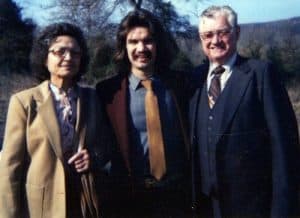
Finding success, but still trapped in shame
A few years later, Russ was invited to join The Imperials, a vocal group he had always idolized. By now he was married to Tori, who gave him acceptance and love. But Tori wouldn’t really know much about the hidden Russ Taff for years after their wedding.
With the Imperials, Russ Taff had a national stage for singing about a great God. His unique style of blue-eyed soul and power vocals made an immediate impact on the Christian music scene. The first Imperials album released with Russ as lead vocalist, Sail On, earned the group a Grammy for best gospel performance and a Dove award for best male group of the year.
Russ’ energetic and authentic performances seemed to indicate that he had found fulfillment in his calling. Yet he still carried within him all those years of shame, of never measuring up to his parents or to the impossible God his father preached about. He battled chronic depression, for which he sought treatment.
“I never felt like God was pleased with me, no matter what I did,” Russ remembers vividly. “I would do a concert and I would get back on the bus and I would say in my mind, ‘Do you love me now? Am I worthy now?’ My whole concept [of God’s favor] was totally wrong. My dad tried to earn it, and he taught me how to try to earn it.”
A new friend, an old enemy: alcoholism
Traveling took Tori and Russ Taff to exciting places and introduced them to exciting people and new experiences. One experience in New York City would dramatically change the next three decades for them both.
Everyone in their new circle drank socially. Russ had avoided alcohol up to this point, but this new environment gave him a different perspective. Tori could occasionally have a glass of wine with dinner and so could others. Was it so bad?
One night when Russ got back to the place they were staying, he checked the refrigerator for a soft drink, but all he found were three bottles of beer. He reasoned that his father drank vodka, and this was just a beer. So he drank one, liked it, and within an hour emptied all three bottles.
And he noticed the voices, the accusations, the shame . . . all went away. “All the stuff that was holding me prisoner just kind of dissipated. I promise I started praising God because I thought, ‘This is a miracle. The voices aren’t there anymore.’”
Tori is quick to point out that with the drinking immediately came the hiding. And Russ Taff had learned about hiding secrets. For the first 20 years, Tori says she never saw him impaired . . . ever. “It was probably one of the reasons [our] marriage survived, too. I didn’t have an image of him passed out in front of my children. It was always hiding.”
More public acclaim, more private pain
Russ Taff left The Imperials to embark on a solo career, and success came immediately. From 1983 to 1991, every album he released became a contemporary Christian top ten, including The Way Home, which hit number one. He added two Grammys and five Dove awards.
Success was his, but life was unbearable. He remembers lying alone and crying one night in Memphis, where his band was playing at the convention center. “I was begging God, ‘Kill me or heal me. I can’t live this way anymore.’”
As would happen so many times during these dark years, God would put people in his path to bring him back from the brink. In 1986, it was “Mama June” Smedley. Tori might not have seen Russ’ alcoholism, but she saw enough hints that she approached him about it. He initially denied it but eventually sought treatment. It was his first time to get sober, but certainly not his last.
Three years later, Russ released his hit single “I Cry,” from The Way Home album. Fans appreciated the humble honesty of his lyrics, but few, if any, knew the pain that brought them to bear, and the personal solace he sought in the dark with Jesus:
When peace cannot be found / And sleep won’t visit me tonight . . .
A restless mind that I can’t tame / How off the floor I call Your name . . .
Sign of silence and the tears begin to fall.
Again and again
The drinking, the hiding, and the deeply embedded childhood pain would create a repeated pattern of recovery and relapse. And all of it was interspersed with more awards and accomplishments. “Our black humor joke was that he relapsed every 10 years, whether we needed it or not,” Tori says. Usually, the relapses happened with the death of a family member.
First came his father in 1997. “When my father died, leaving this planet with so many unanswered questions between him and my brother and me, I thought, ‘Well, one day I’ll get to glory and we can sit down and talk about it,’” Russ recalls. “But just the concept of having to live the rest of my life with this pain inside and not knowing how to deal with it was too much. So when he died, I relapsed for a short amount of time just to shut my head off.”
When his mother died in 2006, the bottom fell out, remembers Tori. “There wasn’t anything holding [the alcoholism and the shame] down again. It came out with a vengeance, and he was unable to be sober. That’s the first time I’d ever seen him like that.
Now that he was visibly drunk, Russ would lash out when Tori confronted him. And that only made him more ashamed and heartbroken.
“I was doing to her exactly what my dad did to me with alcoholism. And it broke my heart. You talk about self-hatred. She’s my wife. I love her. She’s my last contact to the world out there, and if I lose her, I lose everything.”
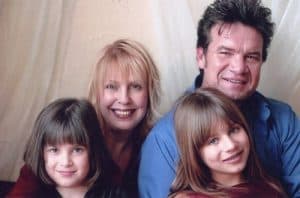
The turning point
Until this time, Russ Taff had always been careful not to let his drinking impair his music. He wouldn’t drink before a concert. But after his mother died, he couldn’t hold anything back. Russ was supposed to join fellow musicians for the filming of Timeless: Concert of Faith & Inspiration.
“I walked up on stage impaired. And I swore I would never do that. But I drank too much.”
He thought his career was over, but what happened next surprised Russ and pointed him to recovery. He started receiving phone calls from artists and friends who were at the filming, asking “Are you okay? We’ve been praying for you.”
“They didn’t throw me out like they did Daddy. But they loved me, and they held on to me. . . . That night I saw the body of Christ pull around me. They saw the pain I was in, they saw what I had done, and it embarrassed them, too. Yet they chose to surround me and hold on to me.”
His eyes were opened. He was in danger of losing his music, his friends, his family. So he called out, “God I want to change, because I want to be a part of everything around me.”
Renewing the mind
For the third time, Russ Taff checked into a rehabilitation facility for his alcoholism, this time for a month. From there, he went to a special treatment center where he began dealing with all the unaddressed trauma of his childhood. That trauma was what had fed the feeling of shame and inadequacy and had given a foothold for the alcoholism. Although it was not a Christian facility, the staff knew that the only way to reach Russ was through his faith in Christ. They placed him with people who understood and were believers.
Somewhere in the midst of all the personal trauma that intermingled with his stellar career of music and ministry, Russ revealed to a friend that he found it difficult to be encouraged by God’s Word. All he heard was his father’s sermons, which produced more guilt. To drown out his father’s voice, Russ’ friend encouraged him to just read the “red words” of the New Testament—the words of Jesus. “You’re gonna find a Jesus that you never knew,” he said.
“And it was true,” Russ recalls. “As I began to read the red, I saw a Jesus that wasn’t anything like I was taught. It’s a matter of your mind being transformed. Part of you is saying you’re condemned, you’re worthless. But then Jesus is saying, ‘You’re my child.’
“It has taken years of learning how to live. It’s a commitment, just like when I came to the Lord, just like when I was baptized. I made a commitment that, no matter what, I will follow Christ and I will follow this path to being made whole.”
Accepting God’s love
Russ began to sing to himself those songs that he had been singing to audiences for years. It’s not that he didn’t believe the truth of the songs he was singing to others, to encourage them in their faith. He just couldn’t accept them for himself.
“I knew his Word says He loves me. I knew His Word says I’m the apple of His eye. But I didn’t feel like it. So I would make myself say it out loud.”
Russ focused on Gloria Gaither’s song, “I Then Shall Live,” a personal song of God’s forgiveness: I’ll walk with joy to know my debts are paid. I know my name is clear before my Father. I am His child and I am not afraid.
“I read that day after day after day, and then my mind began to change. I’m forgiven, yeah. And I’m worth it to God. But you don’t just get prayed for and, boom, you’re well . . . It took years—not that many, thank God—to get well.”
An audience of one
Well on his way to living the life he has sung about for decades, Russ Taff had one more important concert to perform. It would be his smallest audience, but one that would profoundly impact his life.
A friend told him that his pastor was dying of cancer, and every day in the hospital he would watch a DVD Bill Gaither did with Russ. The friend thought it would be a blessing to the pastor if Russ would come to the hospital and sing him a few songs.
Russ arrived at the hospital carrying his acoustic guitar and walked into the pastor’s room. There stood a man of about 6’2” with light hair, blue eyes, and big strong hands . . . looking every bit like his father who had died 10 years before.
“I wanted to turn and run,” Russ recalls. “Even though I’d just spent two months working on myself, dealing with the trials and all this other kind of stuff, I felt disabled.” But immediately came the words he had meditated on since his time in trauma rehab: “I am the righteousness of God! I am loved by God!”
The pastor recognized his visitor and threw his arms open wide, tears streaming down his face. What had triggered painful memories seconds earlier now became a holy moment. Russ asked the pastor what song he would like to hear.
“I’m Glad,” he replied.
Russ pulled out his guitar to play and sing. The chorus of “I’m Glad” seemed as much for Russ as it was for the pastor:
He made me in His image / He made me just like Him /
He trusted the world into my hands / And He gave it so I could win . . .
And I’m glad, glad, glad, glad, glad / that God made me.
A father’s blessing
Before Russ left, he asked the pastor to pray for him. “And he stands up and I’m looking into his face like I used to with my dad—his blue eyes, his white hair, his big hands on my shoulders—when he started to pray. He starts praying and I begin to cry . . . so hard. To the point, I drop down to my knees and can’t contain the tears. Tears are just flowing out of me as he holds me, and he pulls my head to his belly and begins to stroke my hair.”
The pastor prayed for him and spoke long-awaited words of affirmation. “Oh, Russ! Jesus is so proud of what you’ve done with your life. His hand is on you. You’re doing great.”
“The more he did it, the deeper I cried—cries so primal and so deep. He didn’t know my story, but good pastors just have a sixth sense about it. He just kept stroking my hair, and he didn’t stop. It might have been 15 minutes, it might have been 20. I knew he was tired, but in the moment I just felt the presence of Jesus, having a dad confirm me as a man.”
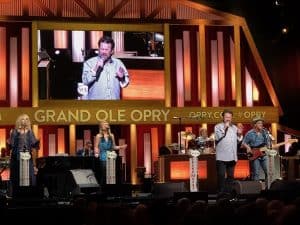
A new dad, a new husband a new man
When Russ returned from the hospital, Tori could tell that something had happened. Russ began to cry as he told the story.
Says Russ, “That day was, for me, the final celebration of just moving into my manhood. I’m a dad now. I am a son. I have been affirmed by my Lord, but through a man. After all those months where I was dealing with the physical part of it all, Jesus took me through that to go through the final act,—a daddy confirming me and telling me I’m a good man, telling me that God is proud of me, and everything a boy wants to hear from his dad.”
Since then, Russ and Tori say he has stepped into his role as a man, as a father, as a husband. “When you’re not sure of yourself and you live in fear, you don’t lead,” Russ says. “You just show up as one of the bodies in that house. But because of the transformation that Jesus brought to me, I will go to any lengths to be [who He made me to be.] ‘Yes I am the righteousness of God. Yes, I am his child and I will not be afraid.’
“I am the redeemed. It’s amazing how it changes you when you hear yourself sing it.”
Copyright © 2018 by FamilyLife. All rights reserved.